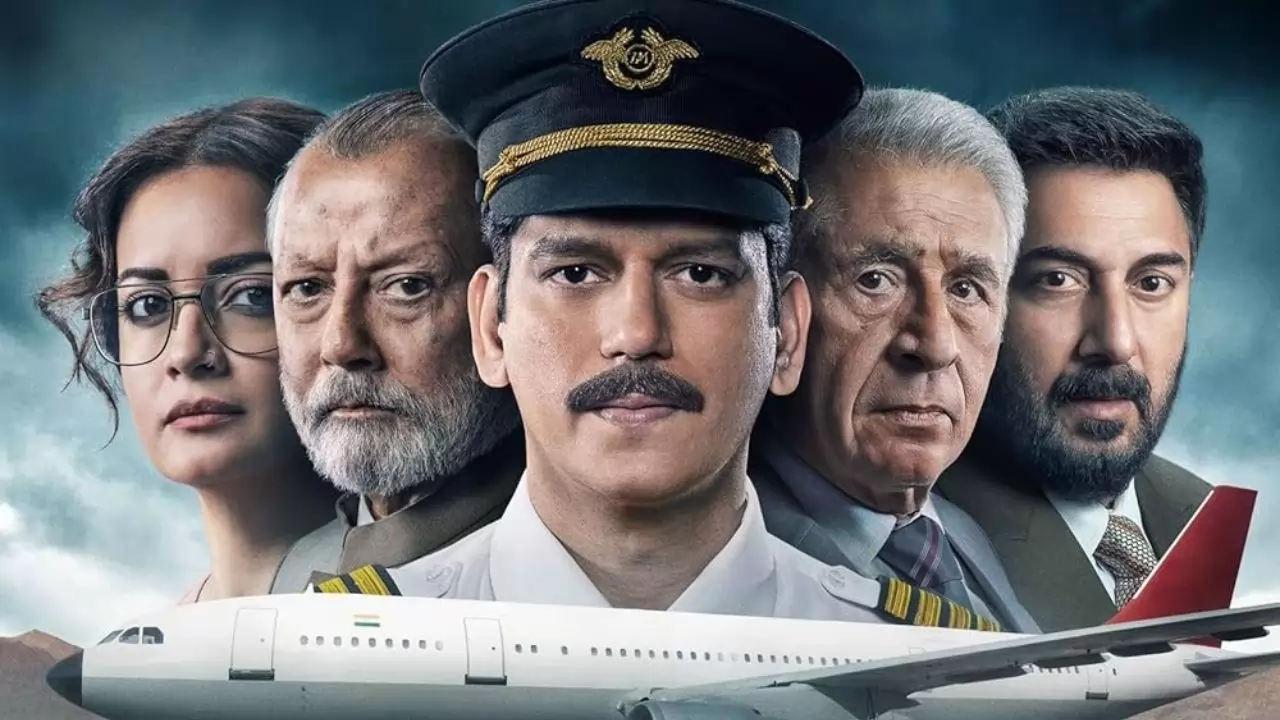
Netflix series IC 814: The Kandahar Hijack (X/Pasi_Edukuthu)
New Delhi: In the wake of controversy surrounding the Netflix web series 'IC 814: The Kandahar Hijack', government sources have informed media that the matter is being taken with utmost seriousness. The authorities have made it clear that "nobody has the right to play with the sentiments of people of this country," government officials told NDTV.
The controversy intensified when Monika Shergill, Netflix India's content chief, was summoned by the Union Information and Broadcasting Ministry. This summons follows widespread criticism regarding the series' depiction of the 1999 hijacking of an Indian Airlines flight by the Pakistan-based terror group Harkat-ul-Mujahideen. The series, created by Anubhav Sinha and Trishant Srivastava, is inspired by the book 'Flight Into Fear: The Captain's Story' by Devi Sharan, the flight's captain, and journalist Srinjoy Chowdhury. It features prominent actors such as Naseeruddin Shah, Vijay Varma, and Pankaj Kapur.
The series has been criticized for its portrayal of the hijackers, who in the show are given the names "Bhola" and "Shankar." Critics argue that these names deviate from the actual names of the hijackers, which were Ibrahim Athar, Shahid Akhtar Sayed, Sunny Ahmed Qazi, Mistri Zahoor Ibrahim, and Shakir, according to a Union Home Ministry statement from January 6, 2000. The statement also mentioned that the hijackers used aliases such as Chief, Doctor, Burger, Bhola, and Shankar to address each other, as reported by passengers.
Social media users have expressed disapproval of the series, accusing the creators of intentionally altering the names to obscure the hijackers' identities. BJP leader Amit Malviya was among the critics, arguing that the use of non-Muslim names for the hijackers distorts historical facts and serves a political agenda. Malviya's comments highlighted concerns that such portrayals could lead to misconceptions about the identities of the terrorists involved.
The hijacking of Indian Airlines flight 814 on December 24, 1999, remains a significant event in Indian history. The plane, which had 191 passengers on board, was en route from Kathmandu to Delhi when it was taken over by five hijackers. The aircraft made several stops, including Amritsar, Lahore, and Dubai, before reaching Kandahar in Afghanistan. The then Prime Minister Atal Bihari Vajpayee's government was compelled to release three terrorists Masood Azhar, Ahmed Omar Saeed Sheikh and Mushtaq Ahmed Zargar to secure the hostages' release. Reports suggest that the Taliban aided the hijackers and the released terrorists in reaching Pakistan.
The series' depiction has provoked a strong reaction from various quarters. Journalists who covered the 1999 hijacking have shared their accounts on social media, supporting the accuracy of the Home Ministry's statement about the hijackers' names. The controversy reflects broader concerns about how historical events are represented in popular media and the impact of such portrayals on public perception.





Copyright © 2025 Top Indian News
